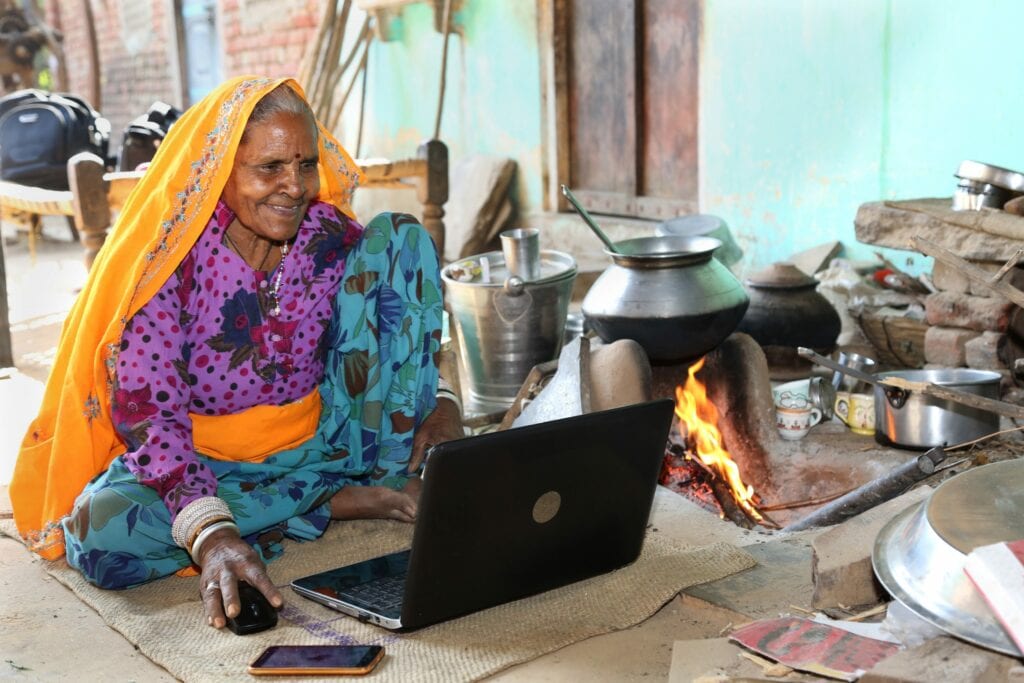4 min read
We live in an age where data and technology are indispensable parts of our everyday life. In fact, over the last few years technology has emerged as a powerful instrument of change and has been employed to address some of the world’s most pertinent and challenging issues. While it is common to observe private sector enterprises making use of technology to maximize their own profits, it is still rare to find technology being harnessed in the social sector.
Technology provides the means to quality education, healthcare and essential services otherwise inaccessible to geographically-isolated communities. Data on the other hand helps the sector plan and implement CSR programmes better; Not only does it facilitate real time data and monitoring, but also reduces manual errors and allows resources to spend more time on field to drive real change. In partnering with social enterprises and NGOs to build their capacity for technology use, we saw astounding overall results:
Real time data at the click of a button
One of the most significant responsibilities of any social enterprise or NGO is to maintain accurate and error-free records and reports that help assess the success of their endeavors. While the task is vital for the programme’s sustenance, if done manually, it demands time and resources with no guarantee of accuracy. Technology platforms that are supported by mobile devices and other online tools help simplify and expedite all of these operations with minimal efforts. Day-to-day operations like attendances, admissions, patients’ health records, inventory, reporting, carbon sequestration, volunteering activities, need assessments and geo-tagging among other operations are now, all done through technology ensuring all data is digitized.
The time saved through digitizing such administrative work has allowed our team to further focus their time and resources into more meaningful work. For instance by using technology, the Mobile Medical Unit programme that provides basic healthcare to tribals in Silvassa, has reduced data entry time by approximately 3-4 hours daily. The significant time saved has allowed the team to cover additional villages, furthering their reach from 24 locations in 2018-19 to 36 in 2019-20.
Secondly, the digitization of tribals health records provides us with easy accessibility to real time data from daily checkups instead of waiting for an entire month for reports. We are able to define the data we need and intervene in a timely manner, as well as hold our partners accountable for the responsibility and KPIs they are given. All of this not only enhances the treatment the tribals receive, but also facilitates more efficient planning of health and awareness camps in the region.
Technology to Enhance Reach and Impact
One of the biggest barriers in supporting marginalized communities is geographical inaccessibility. It is not only difficult to improve market accessibility of a particularly isolated and underprivileged community, but also an ineffective use of resources to simply cater to communities nearest to a company’s operations. They may not always be the most critically in need. It hence becomes crucial to first identify communities that truly need to be brought out of adversity. However, identifying traditional, non-travel intensive ways to reach these distant communities or provide them with alternative markets and customers to improve their earning ability is also a difficult task. In both these cases, technology and digital platforms can provide unprecedented reach and livelihood opportunities.
For instance, we partnered with Mentor Together for their digital mentoring platform- wherein through the Mentor To Go app, our employees mentored 300 underprivileged youth across the country to become work ready. This collaboration provides several needy individuals easy access to professional mentoring otherwise unavailable to them.
The partnership with Amazon Saheli, a digital retail platform has helped several rural artisans who were restricted to customers in and around their villages, access a nation-wide customer base and improve their earning opportunities dramatically.
We also partnered with the Government of Gujarat to harness the entire state’s government schools information using technology and other digital tools. This includes schools dropout rates, progress in attendance, and health rate through midday meals. This information helps us identify gaps which need to be bridged to roll out more effective interventions.
A call for more corporates to leverage expertise for impact
The expertise corporates have make them crucial contributors to the social sector. We’ve seen that leveraging these core competencies through community outreach programmes as well as providing mentorship and guidance to social enterprises and even NGOs is what truly makes a difference. This has allowed us to implement interactive, scalable programmes and provide access to communities in some of the remotest villages as well as slum and semi-urban areas.
All of these seemingly inconsequential shifts to technology-based operations, management and partnerships has led to a significant difference in the implementation process and resource allocation. This leaves for us funds and resources to explore more creative and nuanced community interventions and innovations.
At Sterlite Technologies Limited, technology and innovation are core to how we operate. We, therefore, decided to leverage this expertise for our Social Responsibility initiatives to optimize resources and produce maximum community impact. Learn more about our initiatives.


















